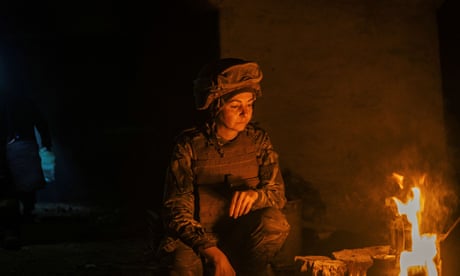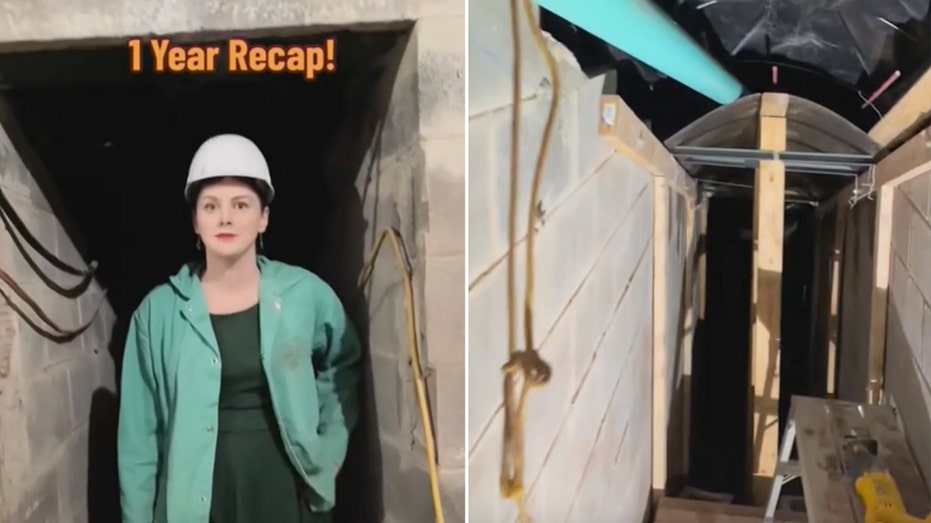- by foxnews
- 15 Mar 2025
Russian army takes control of Mariupol’s Azovstal steel plant
Russian army takes control of Mariupol’s Azovstal steel plant
- by theguardian
- 21 May 2022
- in news

The last group of Ukrainian soldiers holed up in the smashed Azovstal steel works have surrendered, Russia's defence ministry said late on Friday, marking an end to the three-month siege of the defenders' last stronghold in Mariupol.
"Underground structures of Azovstal where militants were hiding are now under full control of Russian armed forces," the ministry said in a statement, adding that in total 2,439 Ukrainian fighters have surrendered.
Defence minister Sergei Shoigu has told President Vladimir Putin that both Mariupol and the steel plant have been "fully liberated", it said.
Pro-Kremlin telegram channels also released a video with Sergei Volynsky, the commander of the 36th Marine Brigade unit, in which he said that his unit has surrendered. The unit was one of the main forces defending the steelworks.
If confirmed, the full abandonment of the bunkers and tunnels of the bombed-out plant would signify the capture of the last Ukraine position in the coastal city.
Hours before the Russian announcement, President Volodymyr Zelenskiy said the defenders had been told by Ukraine's military that they could get out and save their lives and would most likely all leave in the coming days.
In a live video posted on Telegram, Denys Prokopenko, the commander of the Azov regiment which has led the defence of the factory, said only the dead remained.
"The higher military command has given the order to save the lives of the soldiers of our garrison and to stop defending the city," he said. "I now hope that soon, the families and all of Ukraine will be able to bury their fighters with honours."
Russia earlier said that more than 900 Ukrainian troops who were at Mariupol's besieged Azovstal steel plant have been sent to a prison colony on Russian-controlled territory.
The Kremlin's spokesperson, Dmitry Peskov, said the combatants would be treated in line with international norms for prisoners of war, though several senior Russian politicians demanded this week they be put on trial and one even called for their execution.
Earlier this week, the International Committee of the Red Cross (ICRC) said it had registered "hundreds of Ukrainian prisoners of war" from the Azovstal plant and asked for immediate access to them.
"In accordance with the mandate given to the ICRC by states under the 1949 Geneva conventions, the ICRC must have immediate access to all PoWs in all places where they are held," the the Geneva-based humanitarian agency said.
With its urban areas sprawling along the coastline of the Sea of Azov, the besieged city of Mariupol has become a symbol of the worst violence in Russia's war of aggression against Ukraine.
It was one of the first major cities to be encircled and viewed as one of the Kremlin's key objectives both for its economic importance and as a stepping stone in building a land bridge from Russia to Russian-occupied Crimea.
The city has been subjected to weeks of punishing Russian shell fire, which has targeted health facilities, including the city's maternity hospitals. In March, hundreds of people are believed to have been killed when the Donetsk regional drama theatre was bombed.
The capture of Mariupol loomed large in the Kremlin's imagination for propaganda purposes too: as the home base of the Azov brigade, which at its 2014 inception, when the war in Donbas began, included far-right volunteers, some with neo-Nazi affiliations. (In recent years the brigade has been fully integrated into the Ukrainian military).
Next week, Russia's supreme court will hear an application to designate the Azov regiment as a "terrorist organisation", opening the way for sentences of up to 20 years for those convicted of involvement.
The violence aimed at the port city has been a reflection on how long it has held out, with its defenders dug into well protected positions, including within the labyrinth of the sprawling Azovstal steelworks, covering an area of about 4 sq miles, including underground tunnels.
Inverting history, the steelworks has become to Mariupol what the factory district was for Stalingrad's Russian defenders, even as the Kremlin claimed prematurely, on several occasions, to have taken it.
But unlike Stalingrad, which could be resupplied across the Volga river, the Ukrainian defenders of Mariupol were cut off from resupply by the surrounding Russian forces and their naval blockade of the Black and Azov seas.
As the Russians advanced ever further into the city, the defending forces issued statements reflecting their perilous position - as they ran out of ammunition, unable to care for their hundreds of wounded, and were eventually forced to surrender.
- by foxnews
- descember 09, 2016
Neighbors react as viral 'Tunnel Girl' granted permit to continue digging massive bunker under home
"Tunnel Girl" in Herndon, Virginia, "finally" got her tunnel project approved after pausing the project due to a potential violation. Locals and social media users react.
read more


